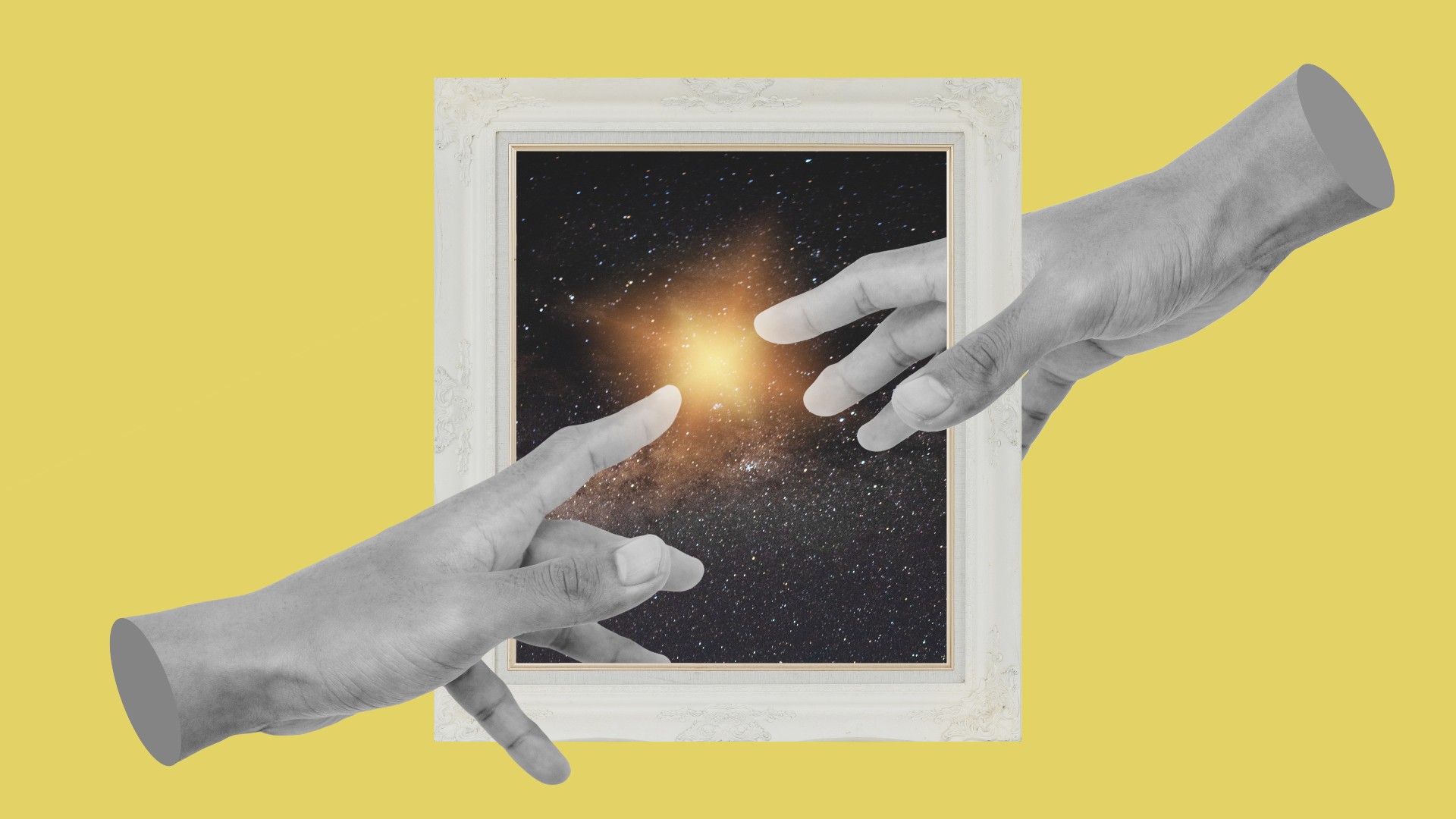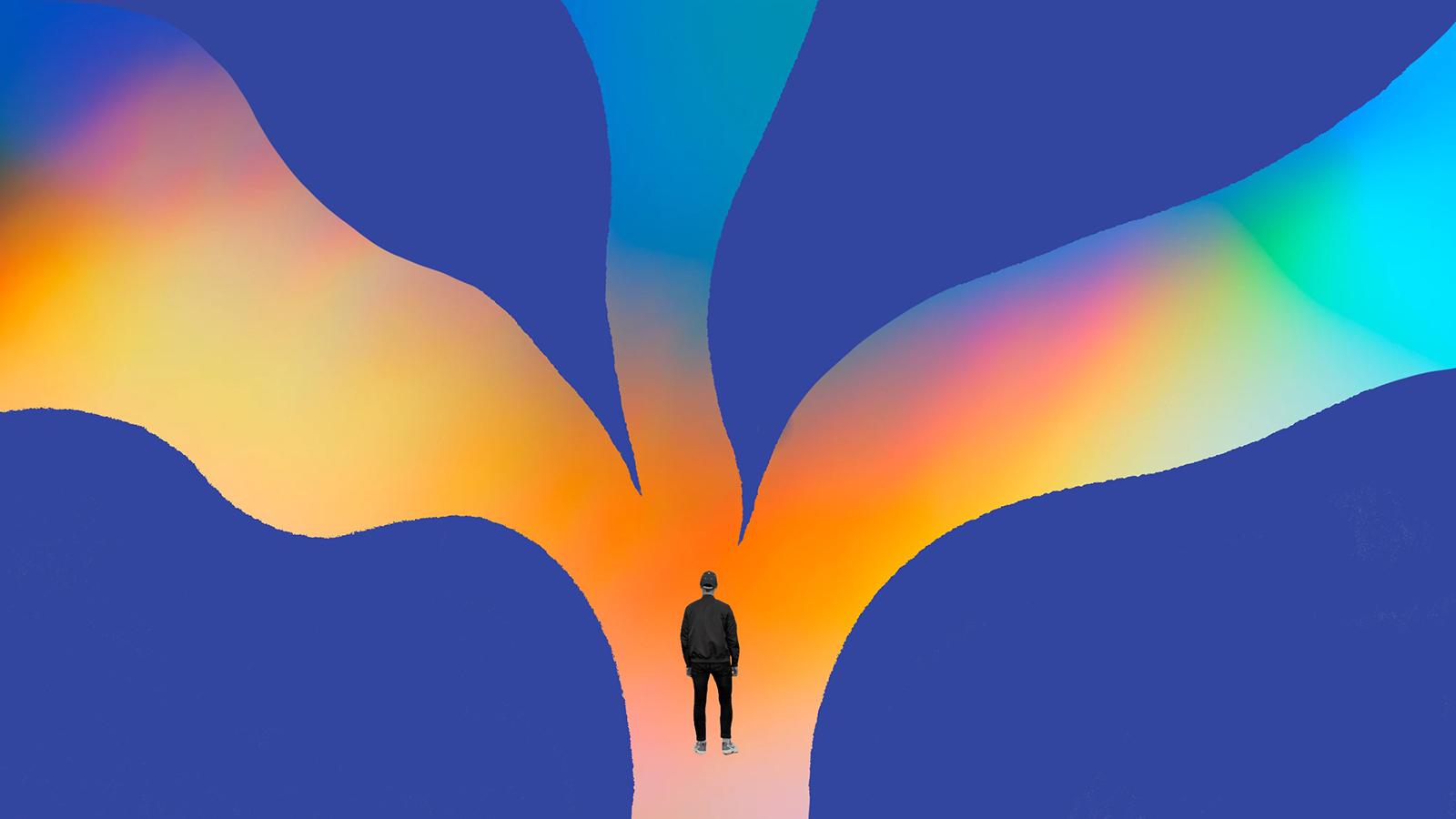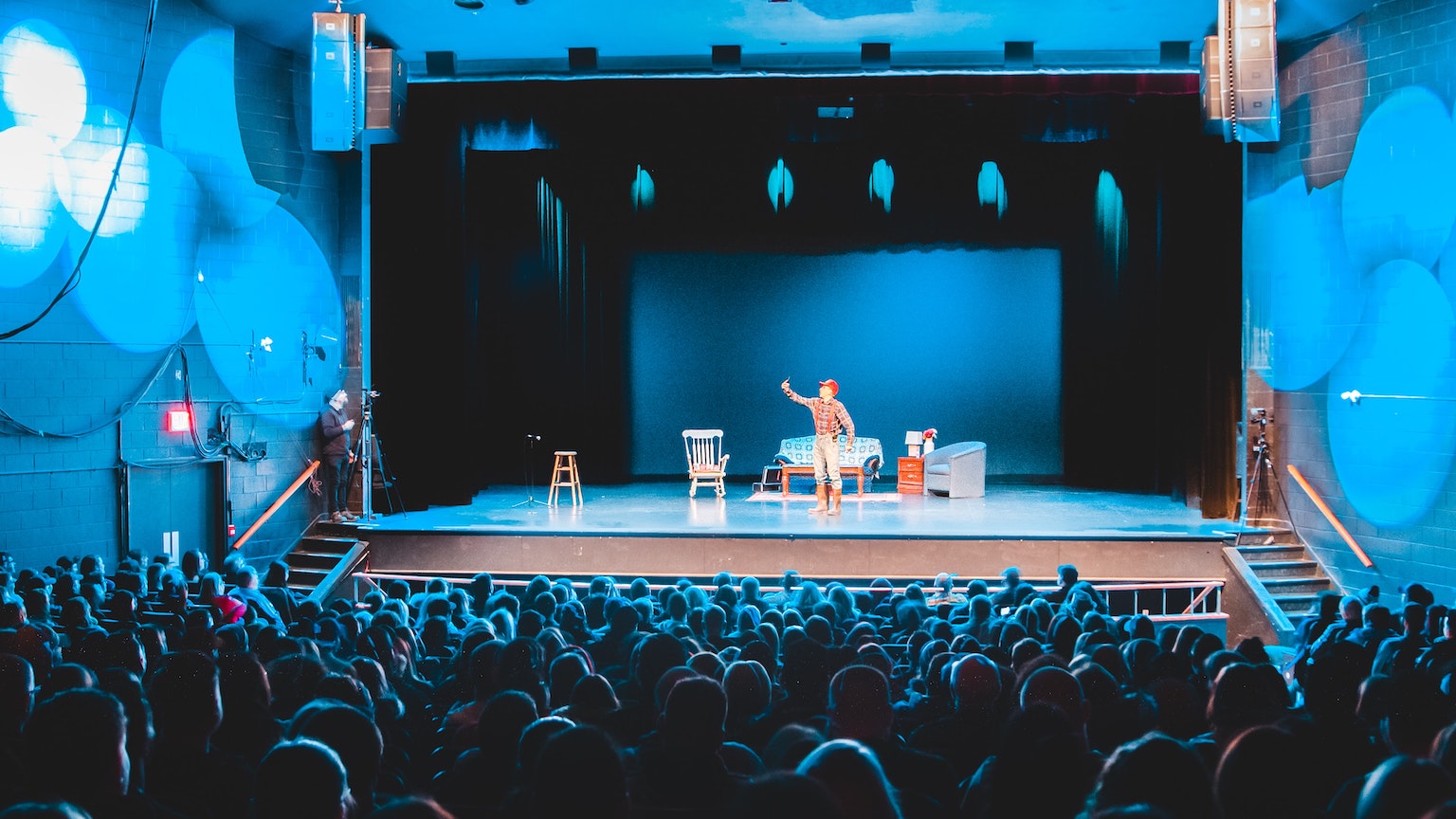5 skills to learn while in self-isolation

Photo by Murtadha Al-Sudani/Anadolu Agency via Getty Images
- During times of crisis an opportunity for learning exists.
- Given that many of us are stressed, finding ways to alleviate anxiety is important.
- While the skills you can learn from home are endless, this list offers five timely options.
Everyone is processing this moment differently. For the 10 million-plus Americans that have lost their jobs in the past few weeks due to coronavirus-related closures (based on unemployment filings; the number is likely higher), this is a time of great anxiety. I was initially going to write “uncertainty,” but that word applies to everyone. Nobody knows how this transforms the world. How we fill this time is important.
For some, not being productive is the right mindset to adopt. How often are adults granted an opportunity to not work all day? When was the last time such a large number of citizens were called to not be productive in order to help society? That is antithetical to the capitalist mindset—a mindset, we’re realizing, that we should be questioning. If you’re able to relax into the discomfort, complete relaxation might be the best course of action for you.
But what does that even mean? Since self-isolation began, Americans are drinking more and eating horribly, both activities that damage their immune systems. When stressed we seek comfort in default habits. Sugar and alcohol provide a temporary sense of relief to some. In the long-term, they’re not good options. Not being productive does not need to imply being unhealthy.
There is plenty of room for middle ground. Below are five activities perfect for this moment. They’re educational, fun, and healthy without needing the stigma of “being productive” attached. We all have to fill our hours somehow. Whether we can’t wait to get back out into the world or are enjoying these quiet weeks at home, we might as well use this time in a way that ultimately helps us as we navigate this crisis…and beyond.
The Magic Of Bread Making
Bread baking
While toilet paper and hand sanitizer are impossible to find, let’s also include flour. I was fortunate enough to score some locally after a few weeks of empty shelves. There is a renaissance in baking, so much so that we’re running out of yeast and flour. As Martin Philip, a baker at King Arthur Flour, puts it,
“I think it’s a salve for … the stress and worry of the moment. We’re going back to the instinct of caregiving, and the instinct to bring community closer to us, and bread is the center of that.”
I rekindled my love for baking bread this week. An old passion when I lived in Brooklyn, for some reason I left it on the East Coast. I restarted my love of the process with delicious French country bread, as we had some yeast on hand. I’m also on day five of a sourdough starter. Once that’s ready for action, the real fun will begin.
Ballet
Online fitness classes are booming. Given that group fitness (along with group everything) disappeared right before our eyes, fitness enthusiasts and people that just want to move are turning to Instagram Live, Facebook, and YouTube for an entire industry of new classes. While you can find every format imaginable, my wife has been practicing with her favorite ballet dancers. She even recently took a contortionist class. In the comfort of your own home you don’t have to stick with your normal exercise routine. An entire world of opportunity is at your fingertips. Plus, ballet is no joke. I took a six-week beginner’s course last year and was happily humbled.
My wife has been taking ballet classes on Instagram with American Ballet Theatre (ABT) soloist Skylar Brandt, L.A. Dance Project’s Patricia Zhou, and ABT’s principal danger, Isabella Boylston. The fact that so many movement professionals are using this opportunity to reach people is astounding. Most of my colleagues at Equinox are also live-streaming and recording classes. (If you’re interested in yoga, I live-stream on Youtube three times per week and archive every class.)
Contemplation
We associate the word “meditation” with sitting down and closing our eyes. For most of history, the word more closely resembled “contemplation” or “introspection” than a physical endeavor with physiological benefits. When you have a problem, you meditate on it—you think through it. What am I doing here? What do I really want to do? Who am I now that a vital component of my identity has been endangered? Millions of people are wondering what the next phase of their career or life will be, how they’ll pay their bills, what 2021 or Autumn or May looks like. We’re all united in the fact that no one knows the answer.
Moments of tension and confusion are ideal times for self-introspection. Don’t miss that opportunity. Ask the hard questions of yourself without getting caught up in an answer. Sometimes the process of asking sets you off on a journey that isn’t immediately apparent, but is most always worth it.

Physician Siddhartha Mukherjee speaks onstage during the launch of the Parker Institute for Cancer Immunotherapy, an unprecedented collaboration between the country’s leading immunologists and cancer centers on April 13, 2016 in Los Angeles, California.
Photo by Kevin Mazur/Getty Images for Parker Media
Hungarian
Jó reggelt kívánok! Alright, while my Magyar is basic, there’s never been a better time to learn a new language. As my wife is adding Italian to her repertoire, I’m turning to the language of my ancestors. There’s a long-running joke that Magyar was created by aliens. Unlike many surrounding nations, Hungarian is the major Uralic language, a group of languages that originated in North China some 25,000 years ago and spread through Siberia into Northern Europe. A romance language it is not.
While fun and challenging, learning a language is also one of the best ways to stave off diseases of dementia as you age. It improves your memory, helps your overall communication skills, and encourages creativity. Perhaps most importantly, it gives you an appreciation for cultures and mindsets foreign to you. I can’t imagine a skillset this world needs more than that right now. Though we can’t travel physically, your mind is never restricted by borders.
Science
The coronavirus pandemic has revealed a profound societal ignorance of science. It’s been there for decades, in the debate between evolutionary biology and creationism, in the distrust of vaccines and, the controversy du jour, 5G, and in the national discourse anytime intellectual pursuits are championed. If we learn nothing else from this virus, it should be to trust experts—and understand that sometimes experts are wrong. Science is a living, breathing process with a steep learning curve.
If you’d like to learn more about the history of medicine and the human body, here are a few wonderful books to explore. They’re elegantly written and highly beneficial. Each one has helped me recognize the efforts needed to understand the world we inhabit. That knowledge is critical right now, at a time when so much disinformation is suffocating the screens in front of us. Keep scrolling for the list.
—
Stay in touch with Derek on Twitter and Facebook. His next book is “Hero’s Dose: The Case For Psychedelics in Ritual and Therapy.”





